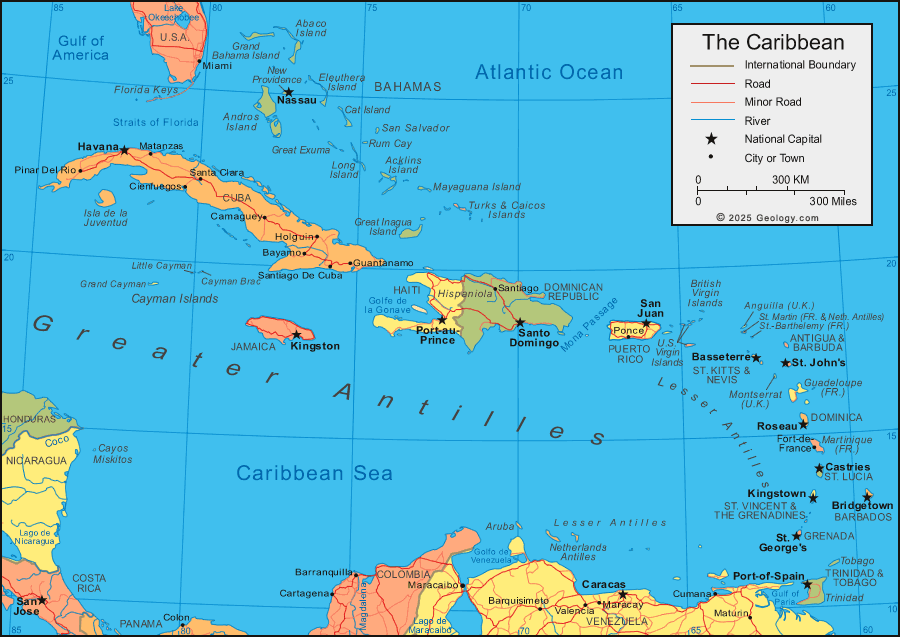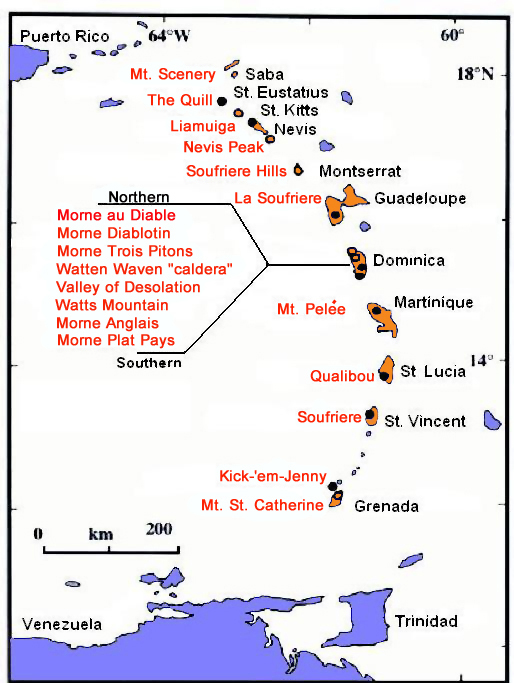Although Mother Nature and Haiti have a very close relationship, where they share almost every natural hazard known to man, from earthquakes to tsunamis as I have covered before, Haiti although being near several subduction zones on the Caribbean plate, has not actually had volcanic activity for millions of years. The entire island of Hispaniola, that Haiti shares with the Dominican Republic, has no active volcanoes. However, as I said before, being near so many subduction zones, the possibility of a volcano forming in the future is more than likely. Most of the volcanic activity that occurs on the Caribbean is in the Lesser Antilles, where as Hispaniola lies in the Greater Antilles as shown below.
Sources:




